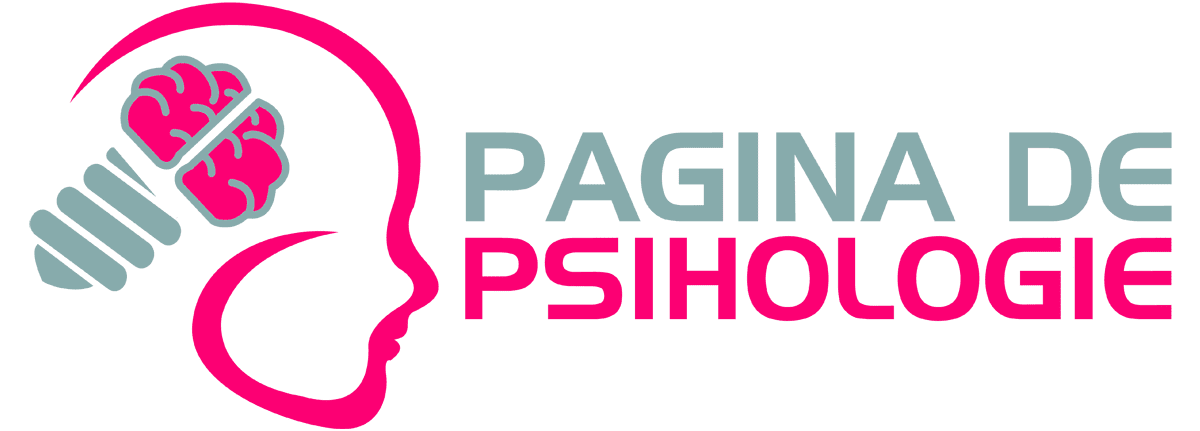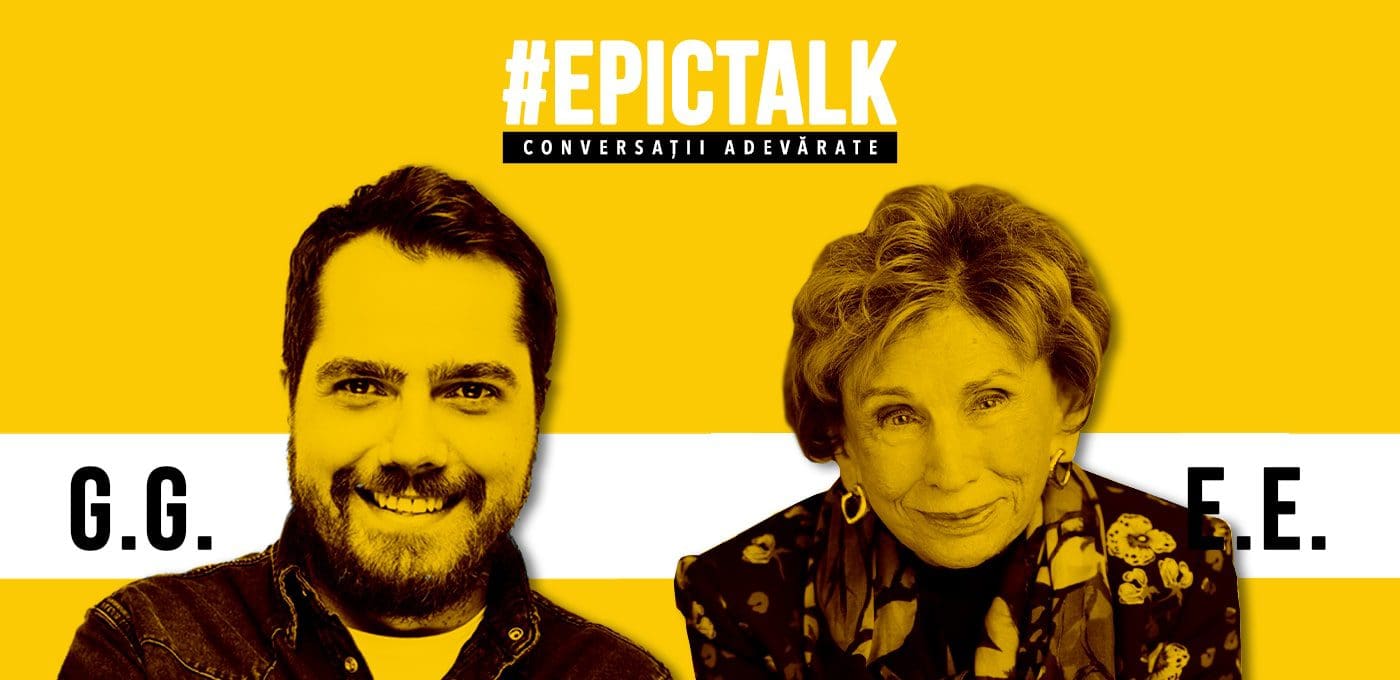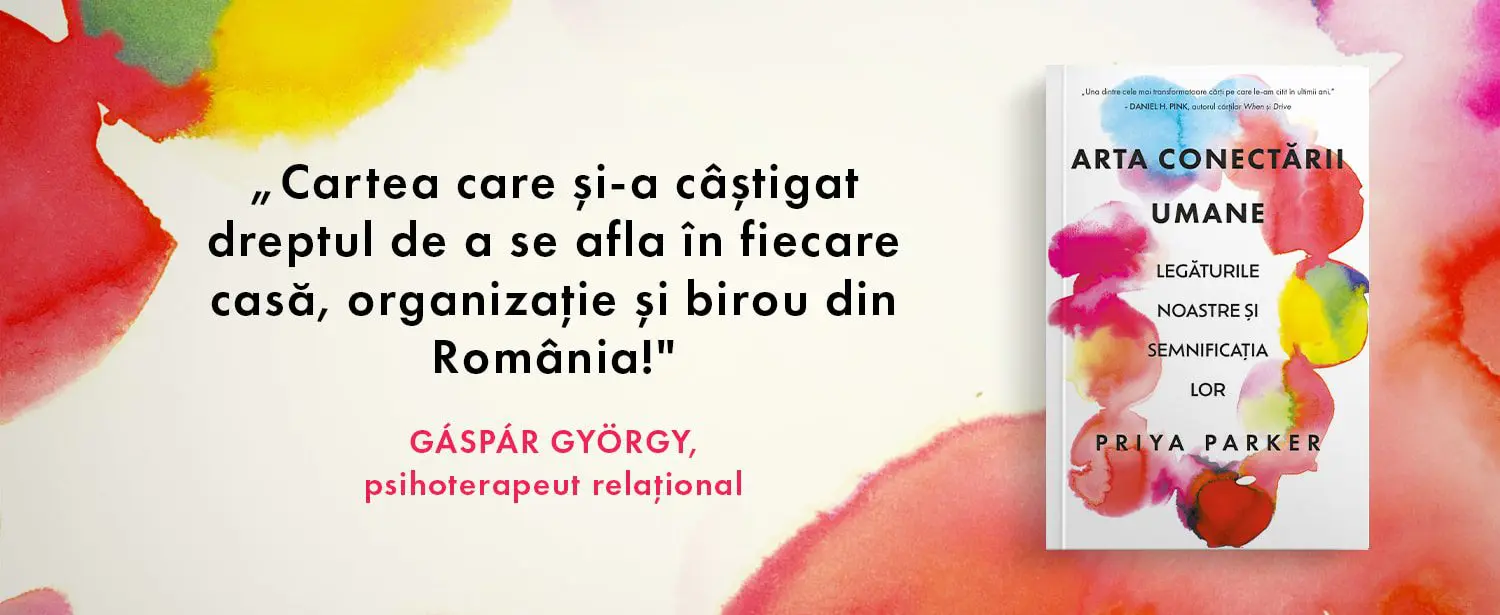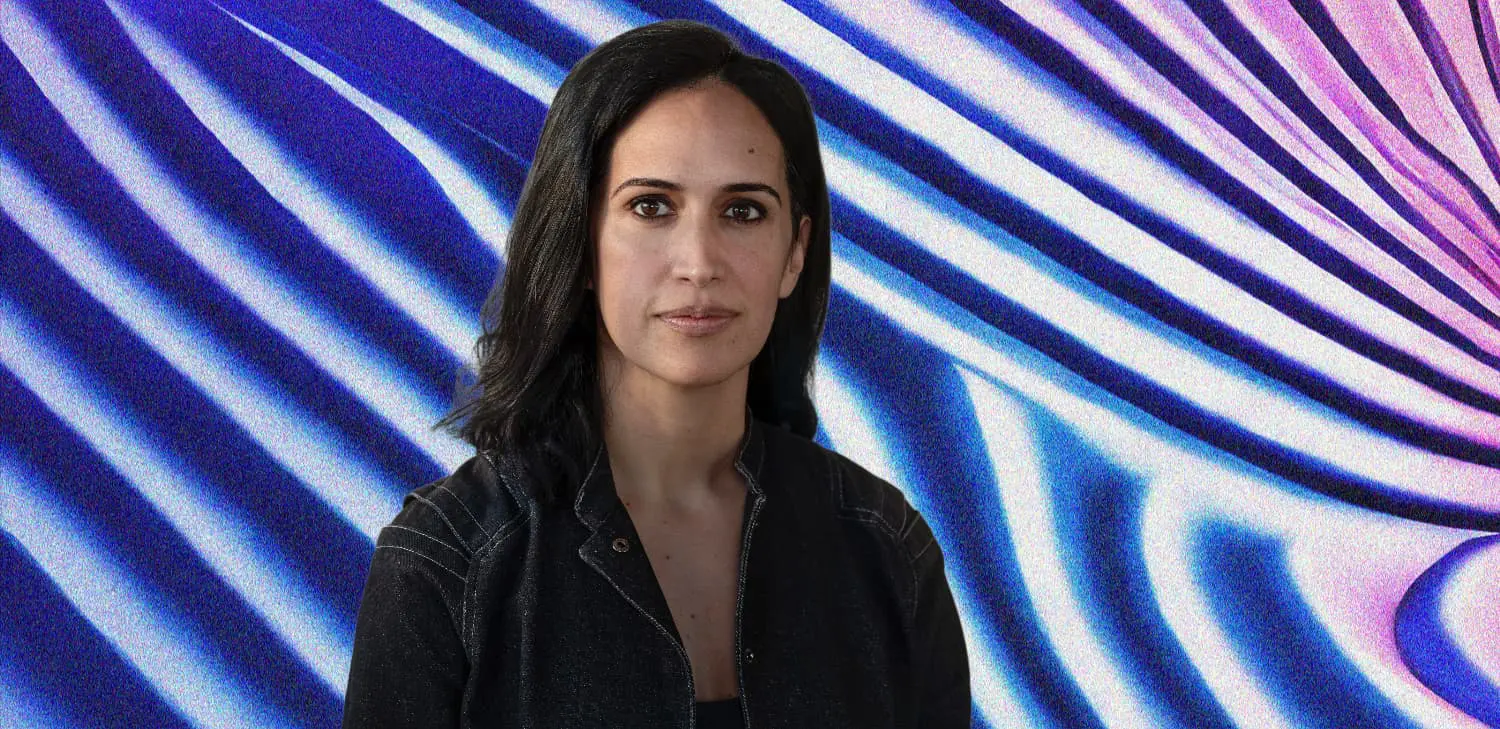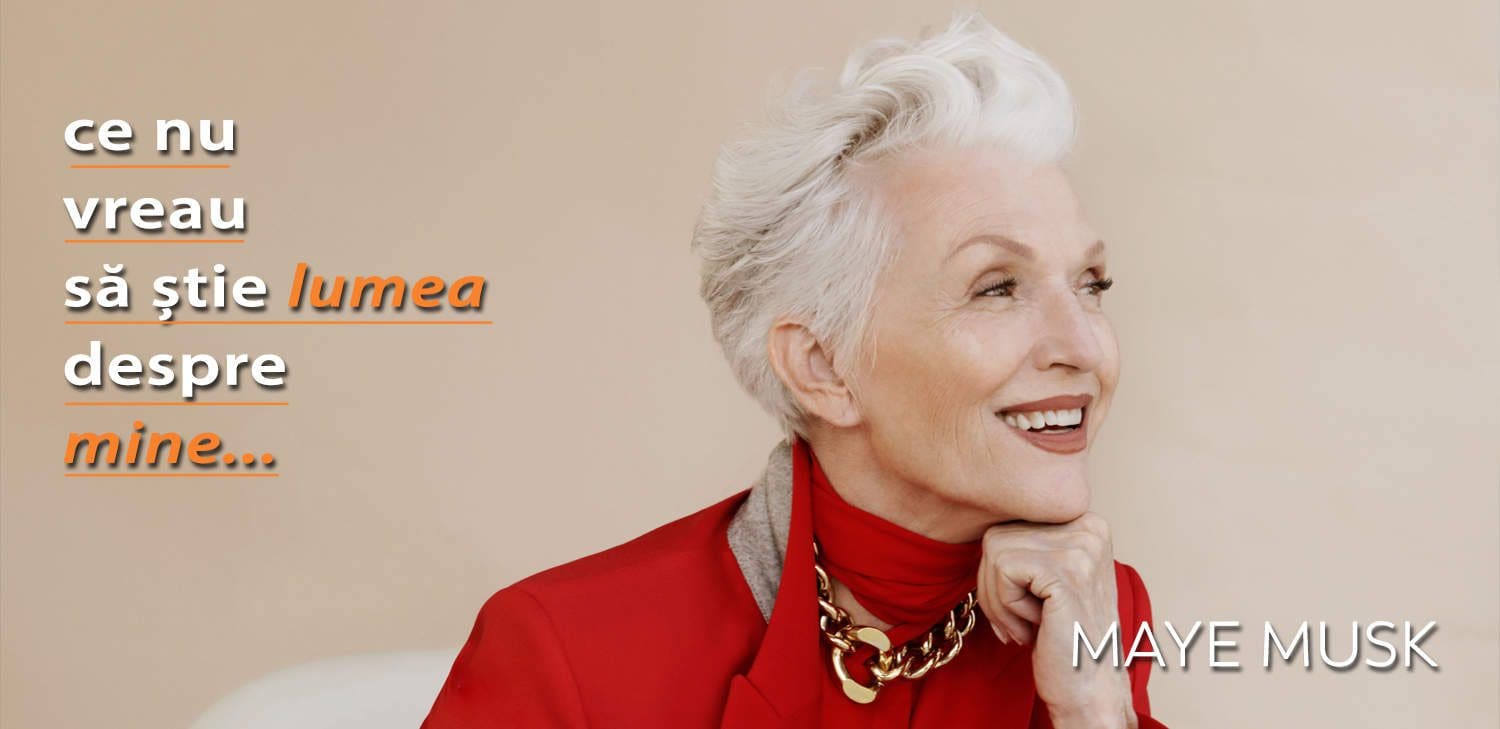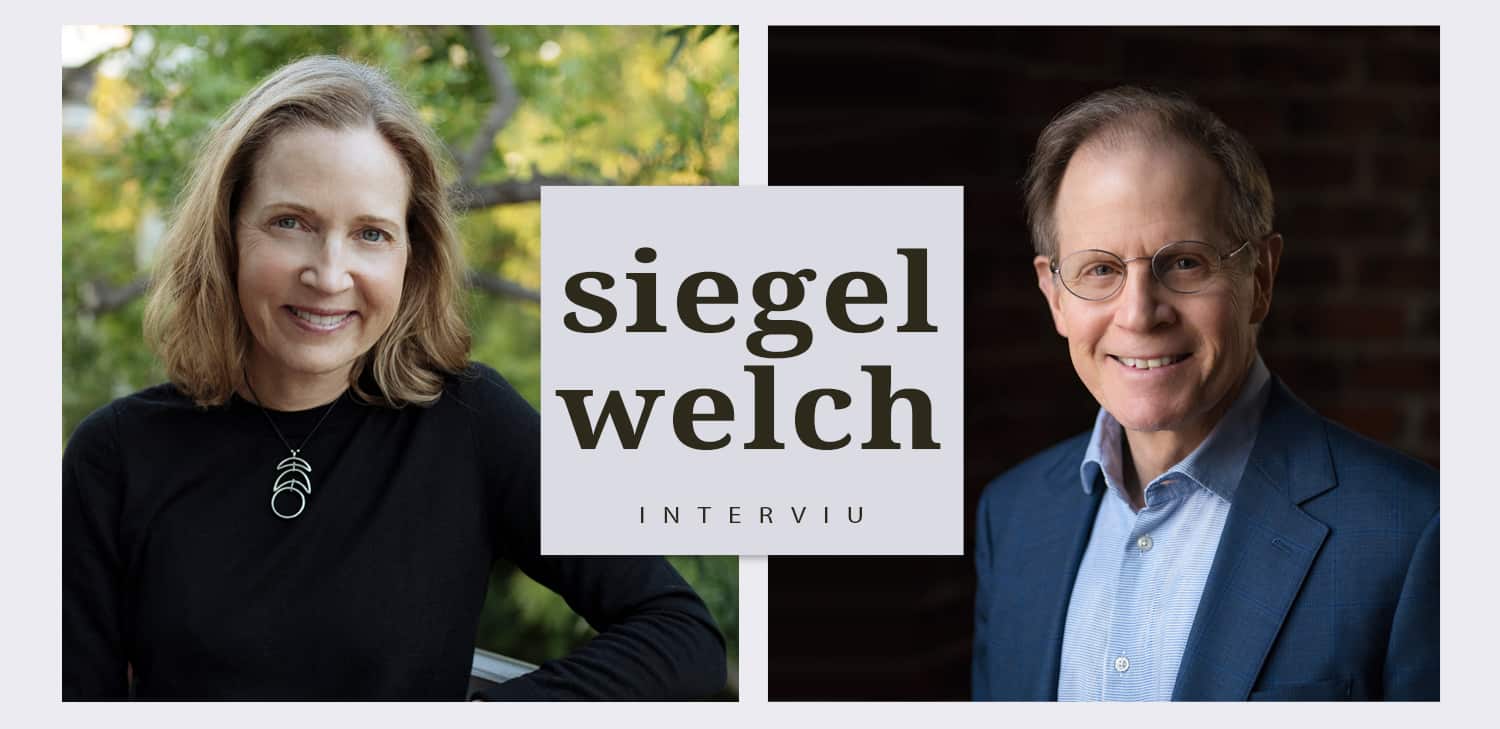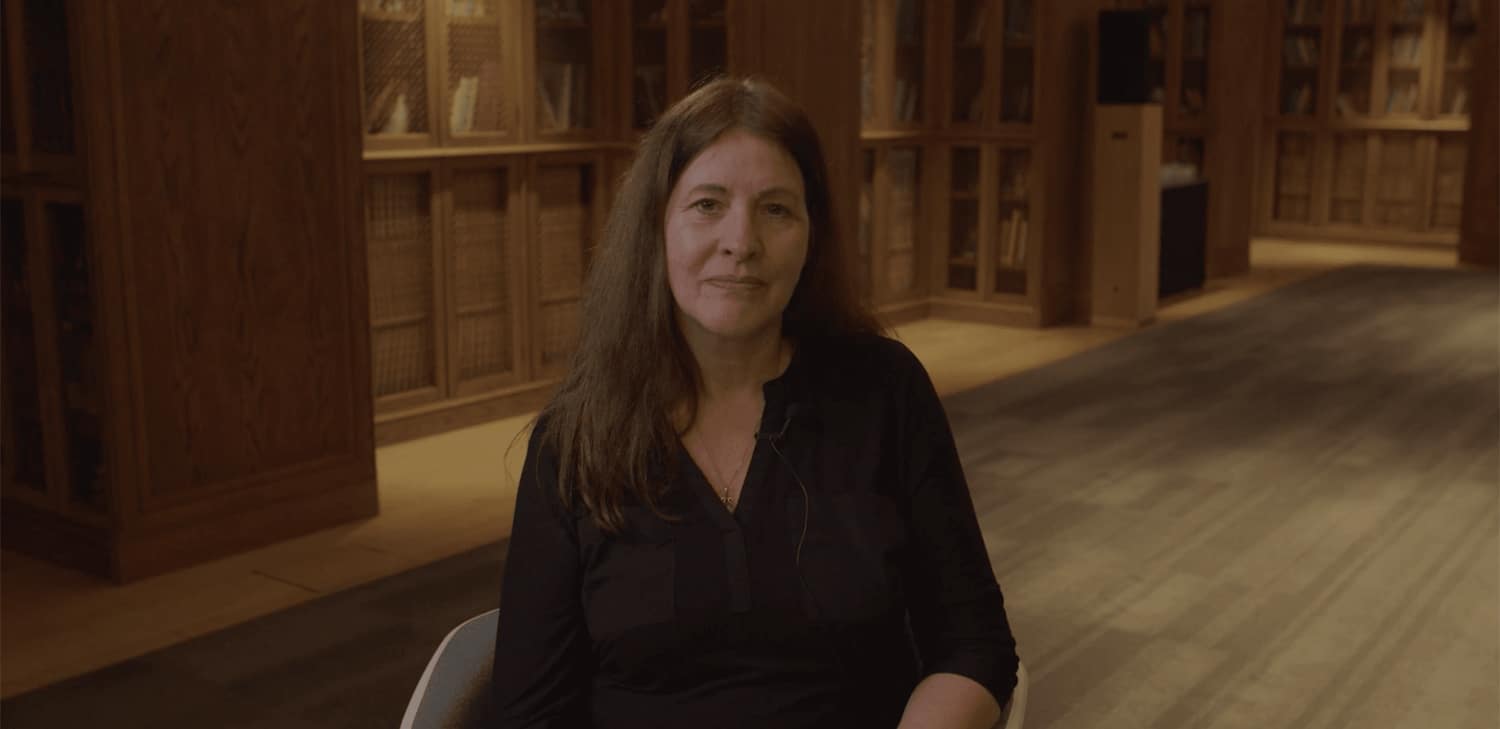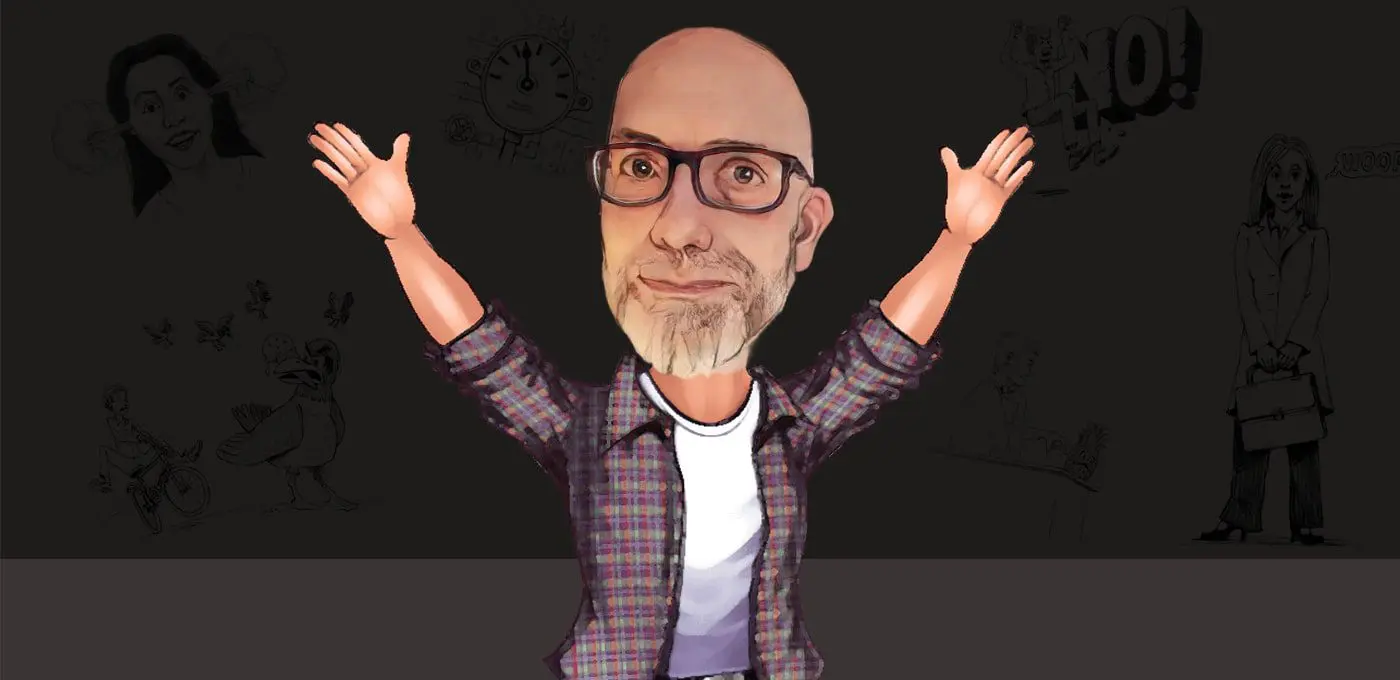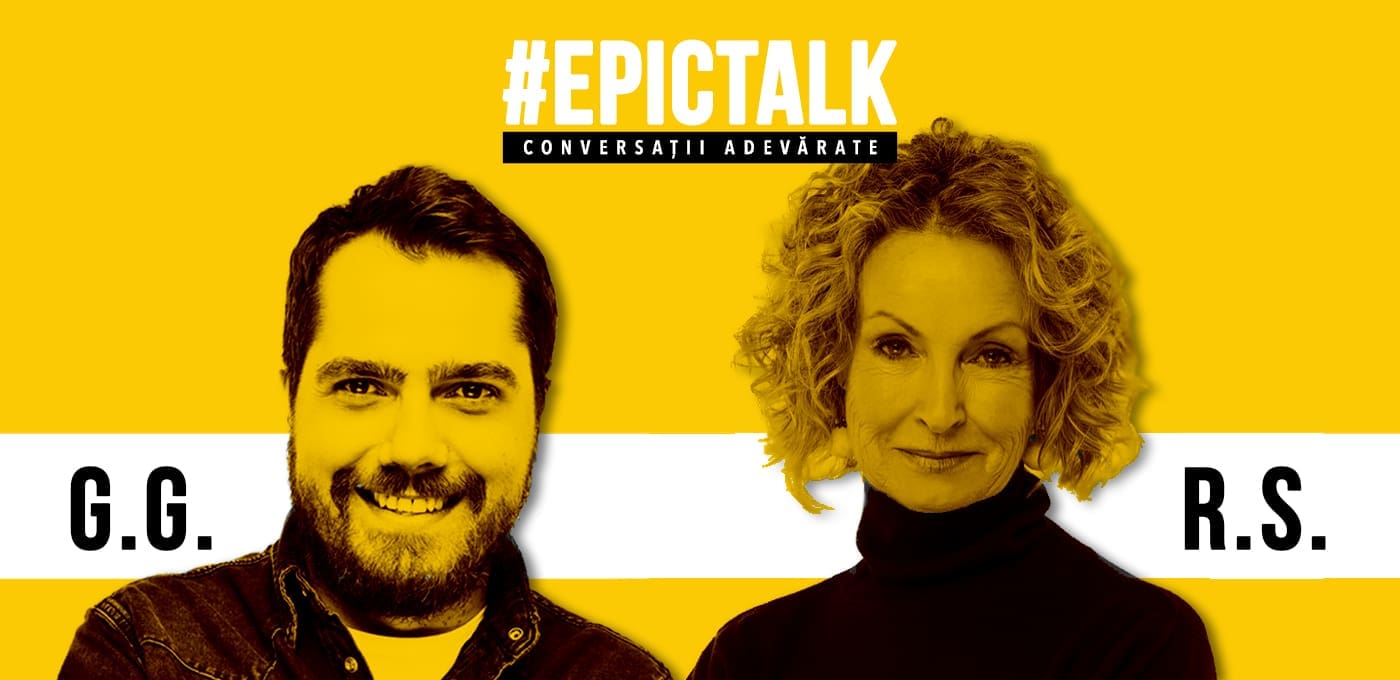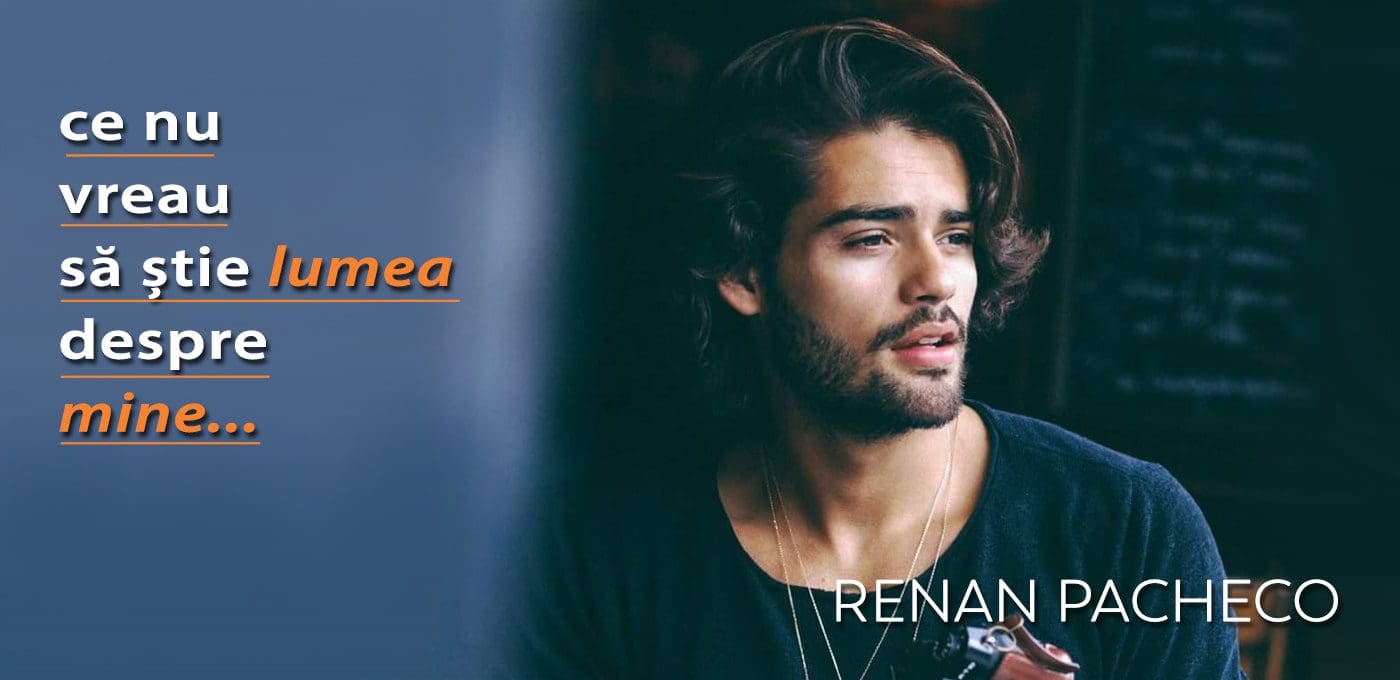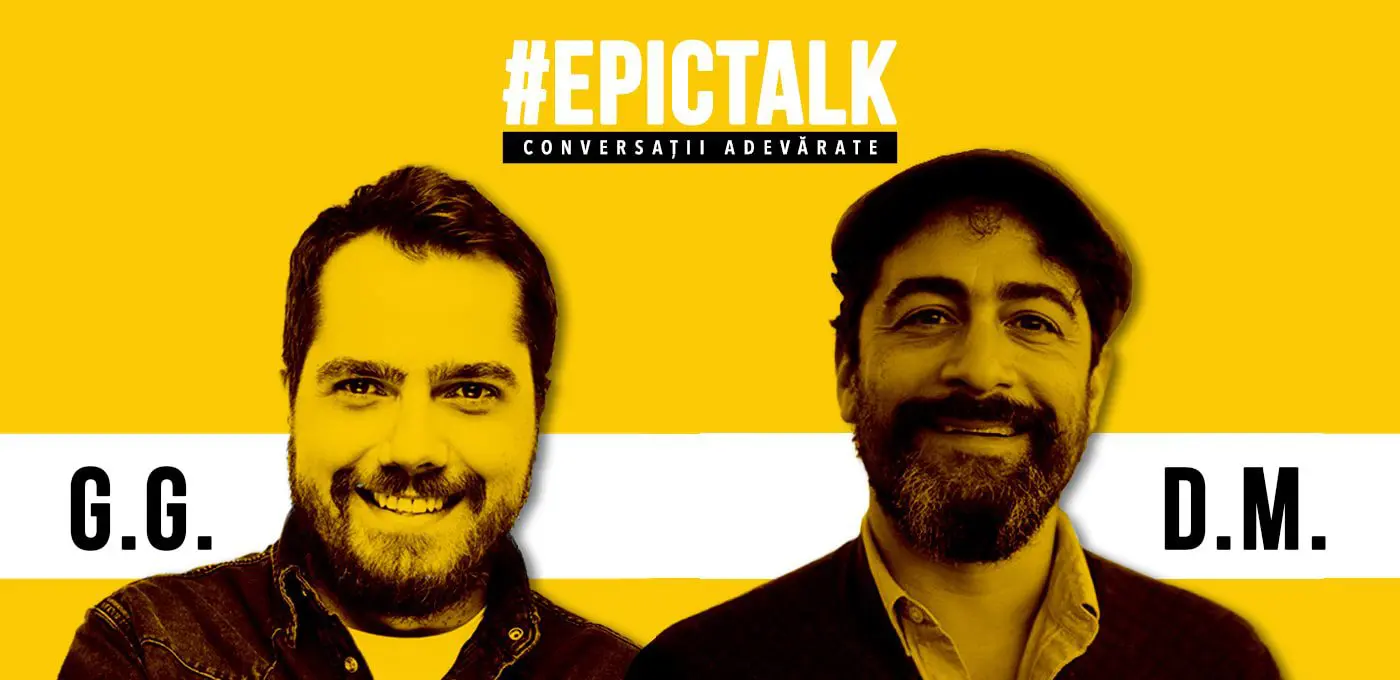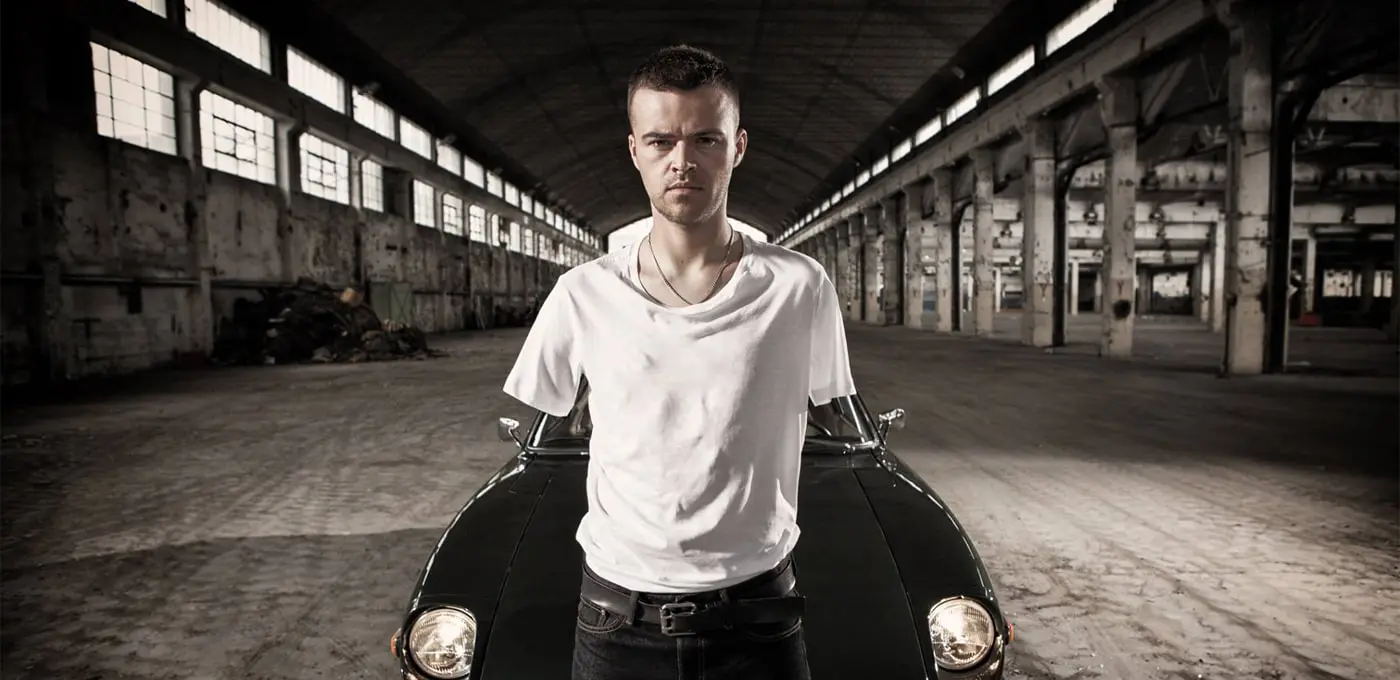This month, I’ve had the great honour of having a unique and exciting conversation with one of the people who became my role models. This spring, I read her first book and it moved me so much, I felt both pain and a lot of liberation. I listened to as much of her interviews as I could, then I read her second book and I thought what would it be like for me to meet her, not only in my imagination, but in real life… and life was generous with me. So I got the opportunity of having an online conversation with Edith Eva Eger herself – the therapist who, at 90, published her first book, who survived the Holocaust, who took her life in her own hands and chose love instead of suffering. Our conversation was on Zoom, and below you have fragments of our dialogue.
Gáspár: I would like to introduce myself. My name is Gáspár György, I’m a clinical psychologist, couple and family therapist; I was born here, in Romania, but I’m partly Hungarian, my father was Hungarian, so I feel like there is somehow a deep connection between us, and this is why I’m so, so happy to have this conversation with you.
Edith Eger: You know, the Romanians and the Hungarians are very alike. In my soul, I am very Hungarian.
Gáspár: This is awesome, Dr. Eger! A few months ago, I watched a TV show (On the Spot) on the Hungarian television, where you were the main character. And I said ‘Oh, my God! Who is this woman? She’s amazing!’ After the show I just started to search on Google who is Dr. Eger, and I found articles, and interviews, and your books, and I said ‘Oh, my God! This is my new role model!’ because you have so much power, and you are so strong, and somehow I felt that I needed such an energy in my life. So I’m very, very happy to have this conversation, Dr. Eger, and again, thank you so, so much for your time.
Edith Eger: People are always sent to me, they don’t come to me. You were sent to me, so I welcome you in my life!
Gáspár: Thank you, you are so nice! Dr. Eger, I would like to start with this question: Who is Dicuka? I read about her in your first book, and please, tell us what her story is? Who is this little girl called Dicuka?
Edith Eger: Dicuka is my nickname. She was a lonely little girl, because she came after two girls, and she was supposed to be a boy. So I spent a lot of time alone. My mother told me ‘I’m glad you have brains, because you have no looks.’ So I developed a very, very good mind, and I studied Latin and Greek, I had a book club, I studied The Interpretation of Dreams by Freud. So that is how I was given a name and I played the game.

Gáspár: Oh, my! Such an interesting story!
Edith Eger: So, you work with couples? I love to work with couples, and see how opposites attract and drive each other nuts and how they want to change each other.
Gáspár: Yes, yes, exactly! It’s interesting how we’d love to remain in a symbiotic relationship, but we know that such a relationship does not come with the possibility for development. Which is why we need to discover who we are in a couple, and who the other one is.
Edith Eger: You know, my cousin, Kaján Tibor, was living in Budapest, and he sent me a picture of Freud. (She shows me a caricature of Freud’s, with his cigar in his mouth and lipstick marks on his cheek). Sometimes a cigar is only a cigar. [She laughs]
Gáspár: Dr. Eger, when I read your first book, The Choice, I was so touched, that I started to cry. I clearly remember that I was on a plane, travelling to my family, and tears rolled down on my face. Somehow, I felt your pain, my parents’ pain, and my inner child’s pain. So the book was very powerful for me, and maybe even healing, I don’t know yet. So I would like to ask you, could you tell us in a few words about your healing process after Auschwitz? When and how did the healing begin for you, Dr. Eger?
Edith Eger: I had deep problems with anger. I didn’t know, really, what to do with it, so I supressed it for a long time. And then, one day, I told my sister that I wanted to go back to Auschwitz. I didn’t do any good on my own, and I wanted to go back to the lion’s den and look the lion in the face, and reclaim my innocence and assign the shame and guilt to the perpetrators. So my sister looked at me and said ‘You’re an idiot. You’re a masochist.’ So she had nothing to do with any of that. But I did go back, and that’s the work I do today. You revisit the places where you’ve been, you relive the experiences, and then you revise your life. So I’m a midwife. You’re pregnant, and you’re going to give birth to the you that was meant to be free. So freedom is my keyword. Freedom from the concentration camp in your own mind, and the key is in your back pocket.

Gáspár: Hmm, so the Nazi is in our mind?
Edith Eger: Yes, and that’s why it’s important to not carry that Nazi, otherwise, you’re still his prisoner.
Gáspár: This is so true. And it’s very important to hear stories like your own, because this gives us the possibility to understand ourselves, to love ourselves, and to have a good relationship with ourselves. In a conversation with Dr. Brené Brown you said that Auschwitz was an opportunity for you. What’s your secret, Dr. Eger? What’s your superpower?
Edith Eger: I used to fight the past and run from it, and now I face it. And I think it’s important to go through the pain, go through the valley of the shadow of death, but don’t camp there, don’t get stuck in there. I refuse to be a victim. It’s not who I am, it’s not my identity. It’s what was done to me. There is a big difference. I refuse to be a victim, I was victimized. And that is why I think it’s important for us to revisit the past, and stop running, and find a way to somehow never give up. I never did give up.
Gáspár: So the lesson is not to run away from our past, but to accept it, to understand it…
Edith Eger: … But live in the present. And think young, but not reckless.
Gáspár: Dr. Eger, you discovered psychology and psychotherapy in your forties. I would like to ask you how was your life before that? How have you managed your traumas and your losses before that?
Edith Eger: I completely ran away from it. I got married young, I became pregnant with Marianne, and the doctor scheduled an abortion, telling me I was too young and that I was not strong enough to have a child. But I’m a survivor, so I got up and said ‘Sir, I’m choosing life. Good night.’ And my husband was following the doctor’s steps and said ‘I apologize that my young wife doesn’t know how to talk to doctors respectfully.’ That whole patriarchy was in 1946. Thank God, Marianne was a beautiful, big baby! So, you have to get a second opinion, always! Imagine if I had listened to the doctor! I never would have forgiven myself. Now, my daughter is a brilliant child psychologist, and also a sports psychologist. And her husband got the Nobel Prize in economics.

Gáspár: Congratulations!
Edith Eger: His name is Robert Engle…
Gáspár: So you are a very proud mother.
Edith Eger: I am very proud of not giving up. And thank God, I’m 93 and I’ve never retired. I live in the present. I can only touch you now. I think in the present and I think young.
Gáspár: You are amazing, Dr. Eger!
Edith Eger: You know what Jesus said, only children can go to Heaven. And I like that, because I want to be child-like, but not childish.
Gáspár: Yes, that makes a lot of sense. Dr. Eger, you are also Hungarian, you were born in Europe. What are your feelings now, when you think about your childhood home in Kassa (or Košice)?
Edith Eger: I feel very sad. Very sad, because my parents had tickets to come to the United States, and they never used them, and they never knew what was going to happen next. I think my curiosity helped me survive in Auschwitz, because I always wanted to know what was going to happen next. Nobody knew. They were waking us up, at four o’clock in the morning, and we didn’t know whether it was going to be the gas chamber or if we would end up taking a shower. We didn’t know whether water was going to come out of the pipes, or gas. So it was a very difficult position to be in, because there was no guarantee, no certainty. That’s why I felt that I found love and that I found God in Auschwitz. And people ask me ‘Where was God in Auschwitz?’

Gáspár: God was in you…
Edith Eger: Well, you know, the guy who was questioning that just died, Rosenberg, and I think I went through that same stage myself. My answer is that my God, my loving God, guided me to change hatred into pity and to feel sorry for the guards, wearing their uniforms, throwing children into the oven without even gassing them. God didn’t kill my parents, people did. So, my God is Tinkerbell, I love their free spirit. That God is with me, and I’m going to be very happy on my death bed, because not only did I survive, but I’m also guiding others to go from victimization to empowerment, from darkness to light, from the concentration camp in your mind to the key in your pocket.
Gáspár: Dr. Eger, what’s your relationship with God?
Edith Eger: I love my God. My God is the reason to pass the buck; I do what’s humanly possible and then I hand it over. But I don’t have any godly powers, because people said I forgave the Nazis. No, I don’t have that power, but I do want to free myself, so I don’t carry the Nazi with me, because if I would, I’d still be a prisoner of the past. How old are your parents?
Gáspár: My mother is 60, and my father was 42 when he died.
Edith Eger: I’m sorry, he was very young.
Gáspár: Yes, he was young.
Edith Eger: I’m sorry, he was very young. And your mother never built a new life?
Gáspár: No, she’s such a good woman and such a loving mother, but I think she chose to sacrifice herself. I think that, without being completely aware of it, she remained loyal to my father, even after we lost him.
Edith Eger: Whilst your father probably would never have wanted anything else than for her to be happy and to live a better life. She needs to go to his grave and give herself the freedom of living a good life… to free herself from the past. This is the most beautiful gift she could ever give your father: her loving and loving herself.
Gáspár: Yes, that makes sense! And this is why I’m so grateful for having this conversation with you, because you’re not just an example for me, but you are also a model to my mother. I think that her and other women her age could learn a lot from you.
Edith Eger: Many Christians believe in the idea of sacrifice, and usually they believe that the extent of the suffering represents the safety of our place in Heaven, that Jesus is waiting for us! But Jesus was also Jewish, He wasn’t a Christian. If I remember correctly, Christianism came a few centuries after Jesus. When I went to school, kids were picking on me and called me a Christ killer. This happened before Hitler. This shows that antisemitism was, and still is… I lived that, seen that, felt that. How old are you, Gáspár?
Gáspár: I’m 39, soon to be 40.
Edith Eger: Do you have any children?
Gáspár: Sadly, no. I have invested a lot of my energy in my work. And if I come to think about your books, they help me in this area too. I feel the midlife crisis creeping up on me, I fear that I waste my time… and when I saw your story, the fact that you were 90 when you published your first book, I realized that there are many things that can be done after the age of 40, and that helped me keep my hope. My father died after he turned 42, which means that my mind has a perspective for that age… only I don’t know what life means after 42. And the fact that you have so much energy and that you are so full of life helps me imagine my own future. I thank you for everything me and all of us got from you, Dr. Eger! I am very grateful!
Edith Eger: You have to be old to be young! [She laughs] I feel so good I’m not smart, but wise. And I love every moment of life. And I still love the csabai, and the gyulai, and the Magyar salami…
Gáspár: I completely agree, Hungarian cuisine is very generous and tasty.
Edith Eger: I love pork, I had an excellent meal in Budapest! You absolutely have to go there on your next visit! I always went to the market and bought goose liver… and I also admit I love chicken paprikash…
Gáspár: Ah! Chicken paprikash fits so well with a cucumber salad!
Edith Eger: On Sunday I prepared a cucumber salad, after a traditional Hungarian recipe.
Gáspár: My mouth is watering already! [He laughs] Going back to human suffering, how can we find the power or the courage to be willing to risk and to suffer?
Edith Eger: I don’t think we ask to suffer, I don’t think that we want to suffer… but when we are there already, we have a choice: Whether we find the gift and the hope in hopelessness. I was able to use Auschwitz as an opportunity for me to discover that life is from the inside out, not from the outside in. Nobody makes me happy, I make me happy. Because the only one I have for a lifetime is me. There will never be another you, there’ll never be another mother of you, and I know that your father wants your mother to be happy. She’s not doing him a favour at all. She’s just a martyr, and I don’t know if it pays off to her. You know every behaviour satisfies a need, so you can look for the secondary gains. It does not help her sit on her throne, like a helpless queen.
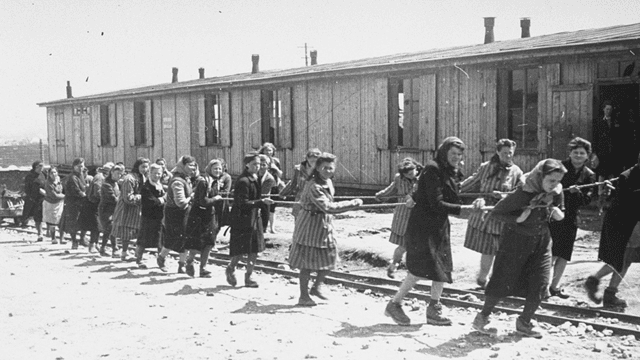
Gáspár: Dr. Eger, you talk a lot about freedom, but what’s the difference between positive freedom and the negative one?
Edith Eger: I think freedom is from the concentration camp that I create in my own mind. Everybody has a choice; you cannot be a victim without a victimizer. And sometimes, that’s what happens. Victims are weak and victimizers are strong, so the victim will identify with the aggressor. That’s what we call a Stockholm syndrome.
Gáspár: How can someone free themselves from the prison built in their mind?
Edith Eger: Well… I think we’re born with love, we learn to hate, we learn to judge other people, and we create a belief system, and that’s why you have to know what you think, because what you think, you create. When I was in Auschwitz, I always lived for the tomorrow. I had been seeing a boy who used to say I had beautiful eyes and beautiful hands. So I was not allowing the guards to touch my spirit. They could throw me in the gas chamber any minute. They had that power. But they could never murder my spirit.
Gáspár: That’s so powerful!
Edith Eger: Very powerful, because all we had was each other, and if you were just for yourself, you didn’t make it. You have to transcend your Ego needs, and that’s what having each other mean. So we had to form a family of inmates. January 6th, on the Capitol. Did you hear about that? Six million was not enough. How do you think I felt? Coming to America and expecting democracy. But this is no democracy. When I went to the bathroom, in the factory where I worked, in 1949, I discovered that the people of colour were treated differently, so I joined them, and I marched with Martin Luther King, in 1963, in Washington DC.
Gáspár: This is so amazing!
Edith Eger: See, love is not what you feel, it’s what you do.
Gáspár: Yes, exactly.
Edith Eger: Positive thinking in itself doesn’t bring us any good. Positive thinking is only good if followed by positive action.
Gáspár: Another important concept in your clinical practice is the choice and your approach is choice therapy. What are the principles of your approach?

Edith Eger: Well, you know, people call me a shrink, but I say ‘No, I only stretch.’ I stretch the perspective over choices, because the more choices you have, the less you feel like a victim. That’s very important, that you don’t shrink. I was asked to take care of someone who was going to get shock treatment, but I don’t work like that. I don’t want anybody to mess with the brain, so I’m also very careful about medication. America is the most medicated country in the world. Anyway, I think that you might be able to answer me a question, about you getting married.
Gáspár: Thank you for this opportunity!
Edith Eger: Would you like to be married to you?
Gáspár: I don’t know. I have thought a lot about this question, if I’m good enough to be someone’s husband. And I think I work a lot at it.
Edith Eger: Than stop working at it and go play at it. You don’t work at it, you just allow it for you to be not a shrink, but a stretch.
Gáspár: So that means that I have to give myself permission to play more?
Edith Eger: … To be human, to make mistakes, to give up perfectionism, give up the need for other people’s approval, to give up the need to please everyone. You have to have a certain personality, to be congruent. So if you want to get married, you want to talk about sex, money and in-laws. Sex and money are about control and power. Don’t have sex after a fight, because then you reinforce the fighting. Don’t do that. Be an adult. Be a man, not a male. And a man is a teacher, a role model, a protector. That’s a man.
Gáspár: Thank you! Dr. Eger, tell me about Eric. I know that he was your boyfriend. Maybe he was your fist love?
Edith Eger: Imre (Eric) was my soulmate. We were going to go to Palestine and become very strong Zionists. Here is his picture with me, when I was fifteen years old. (See below) He was killed before liberation, unfortunately.
Gáspár: Yes, I remember reading that in the book.
Edith Eger: When I was liberated, they put me in a hospital, they put me in a cast… I became suicidal knowing that my parents were not coming back and Imre was killed at Köln. There was no PTSD, don’t even think about it. It was not post-traumatic stress disorder… it’s not a disorder. It’s grief.
Gáspár: You mean it’s a normal reaction.
Edith Eger: Yes, it’s a normal reaction to loss. It’s grief. It’s not clinical depression. Grief, then feel, then heal. That’s the journey. You can’t heal what you don’t feel. You don’t medicate grief.
Gáspár: Dr. Eger, you met Viktor Frankl, he was even your mentor…
Edith Eger: Yes, yes, we even danced together. I also gave the keynote address for his 90th birthday. He climbed a mountain and he took flying lessons in his seventies. He was a very amazing person! And I was fortunate enough to meet him in San Diego in the Seventies. And yes, I’m a diplomate in logotherapy.
Gáspár: What do you think, what are the roles of relationships in our lives? How much do connections matter?
Edith Eger: I think we’re connecting, hopefully, with our genuine self, not with the image of ourselves, that we call the ego. That’s our false self. It’s not the real you, it’s what you create about you. But you see, I’m the same on stage as off stage and I never want to be anything else. This is why I come to you and I ask you to be my friend, and like me as Edie, Editke, and maybe you will tell me Köszönöm szépen (Hungarian for „thank you “). I’m a big fan of the four letter word, risk. I risk in order to get what I want. But if you don’t get what you want, it’s ok to be disappointed, but don’t get discouraged. It’s ok to be angry, but don’t allow it to lead to resentment. So you have to practice a good sub-dialogue, to tell yourself that it’s ok, but that doesn’t mean you got rejected. Nobody rejects me but me. So it’s really important to watch your sub-dialogue, that you’re still a whole person, a good person… you just wanted something and you didn’t get it. But you were not ‘rejected’. No one rejects you but you. Pay attention what you’re paying attention to, because what you think, you create. That’s for sure.
Gáspár: What are your thoughts about self-love, Dr. Eger? What does self-love mean these days?
Edith Eger: I think that self-love is self-care. It’s not narcissistic, I keep saying that over and over again. When I was visiting Auschwitz and I was coming out, I saw a man in a uniform, and for a moment I thought I was back in the camp. The realisation that I had an American passport in my pocket, I remember I decided I’m not Popeye, I am who I am, I don’t have to tell anything to that man, just be myself. I don’t have to create an image that maybe other people like better, I don’t lie about Auschwitz, but I don’t live in Auschwitz. I live in the present.
Gáspár: How can we balance self-love and the love for others?
Edith Eger: Well, you cannot love anyone, unless you love yourself. You can’t give what you don’t have. So it’s very important to love yourself, because if you don’t, why should I?
Gáspár: So the first step is to love ourselves, and only after that we can love others.
Edith Eger: Nothing is good if it’s overdone. Don’t do anything in excess. You don’t have to kiss your hand every minute and go ‘love me, love me, love me’. Love me is to free yourself, to choose your feelings, to not be locked in the prison of what you should do, or have to do, or must do. To know you have a loving parent inside of you. For this, you have to divorce your own parents. When your father died at a very young age, I don’t know if anybody took you aside and really told you about what it means to be a grown-up. It’s good to find someone with grey hair, someone that you respect and can ask what it takes to be a man. Remember, not a male, but a man!
Gáspár: Thank you so, so much!
Edith Eger: You welcome! If you have doubts, then don’t do it. When you’re ready, dive in, get down on your knees and get her pregnant. For a child, it’s better to be married. Children need happy parents. Separate the needs from the wants. You need to breathe, you need to sleep, you need to eliminate. But you don’t need to get married. So separate the needs from the wants.
Gáspár: Thank you, Dr. Eger! My last question is: have you any advice for us after this pandemic situation? What’s your advice for us to keep our mind, our feelings, and our well-being?
Edith Eger: Don’t go back! Have a new beginning. With a new beginning you give birth to the you that was meant to be free, free of judgements… but don’t go back! And don’t try to forget the past. It happened, and if there is one thing you cannot change, that is the past. Are you revolving or are you evolving? My definition of love is the ability to let go. Let go of the need for approval, let go of perfectionism, and give birth to the you that was meant to be free.
Gáspár: So this is a time to learn from the past and to discover ourselves…
Edith Eger: Yes, there is a little boy down there, crying, and that boy needs a healthy loving daddy. And you show up for him. Go find him! He’s there, in you.
Gáspár: Thank you, thank you so much, Dr. Eger, for your time, for you being here, thank you for your kind words! And thank you for the books! I love The Choice and The Gift, they are amazing! Thank you so much for your work! And next time, let’s meet in Budapest, what do you think about that?
Edith Eger: Ooh, I’d love it! You know, I’m writing a book with my daughter on Hungarian recipes. Hopefully, the meeting is going to happen!
Gáspár: Great, let’s do that!
Edith Eger: God bless you! Thank you!
